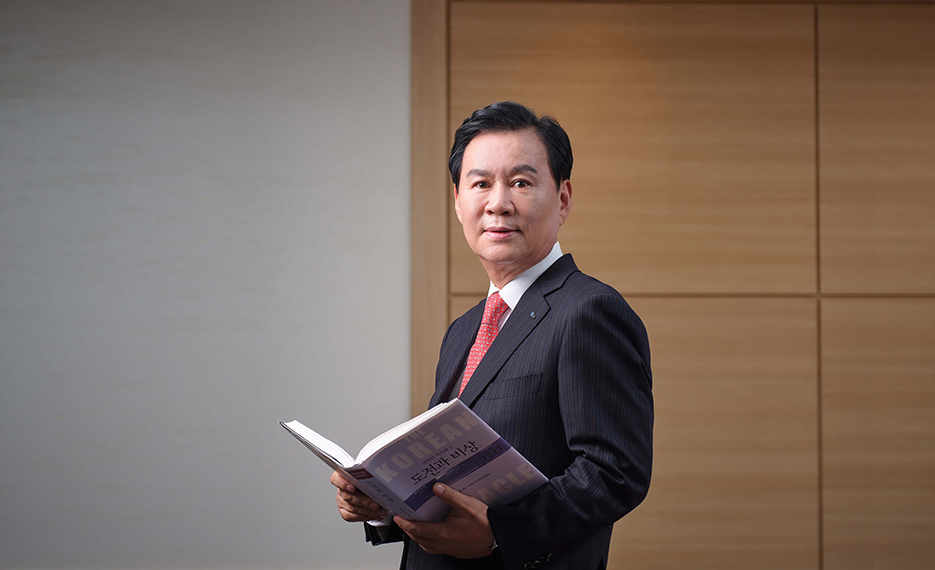VOL.03 · November 2022

VOL.03 · November 2022
From the perspective of scientists’ and engineers’ life cycles, the post-doc period is a stage where new graduates and the post-docs grow into mature and ripe researchers. The U.S. National Postdoctoral Association defines a postdoctoral researcher as “an individual who has received a doctoral degree and is engaged in a defined period of mentored advanced training to enhance the professional skills necessary to pursue his or her chosen career path.” What merits our attention here is that postdoctoral researchers still need training, mentoring, and research support.
KIRD, which celebrates its 15th anniversary this year, is Korea’s one and only training institute for scientists and engineers. KIRD is committed to supporting career development for young scientists and engineers, including postdocs. President Kuichan Park is a renowned expert in human resource development with experience on the Economic Planning Board (current Ministry of Economy and Finance) and as the previous president of POSCO Group University and Dankook Human Resources Academy. The following is an excerpt from the interview with President Park.

It is concerning to see that the ground for postdocs’ growth has been diminishing in Korea. According to the “Mid-term and Long-term Innovation Direction for Science and Technology Talent Policy (proposal)” laid out by the Ministry of Science and ICT in 2020, 25% of the new doctors pursue their career as postdoctoral researchers. The Science and Technology Policy Institute's (STEPI) analysis revealed that 37% of the new postdoctoral researchers cannot afford to carry out their own independent research as they are engaged in the research of their advisors. What’s more depressing is that most of the respondents to the KIRD survey answered that the level of guidance they get from their advisors is merely “paper review.” Seven out of ten respondents said that career development is something they should take care of on their own, suggesting they are left in a blind spot.
In addition, while the number of postdoctoral researchers is on the rise, the number of regular positions in universities and public institutions falls short of the increase. The supporting system for career transition, such as a business foundation or commercial area entrance, is not in place either.
As far as I know, the subject of postdoctoral researchers’ career development is also a rising topic discussed in advanced countries. According to “Reducing the Precarity of Academic Research Careers,” released by the OECD in May 2021, major countries such as the U.S., U.K., and Germany are experiencing aggravating labor market conditions with increasing numbers of postdoctoral researchers. However, these countries have established dedicated supporting organizations and agencies for postdocs and put systems in place to provide various training programs. The United States, the first country to adopt a postdoctoral researcher policy, established the National Postdoctoral Association (NPA) in 2003 to carry out surveys and support career design for 20 different professions. Each country spares no efforts to invest in cultivating young talents in science and technology. AAAS is providing a career management program for new scientists and engineers. In addition, it has established the “America COMPETES Act (2007)” to mandate counseling, training, and guidance for postdoctoral researchers. Based on this, universities and research institutions are providing a wide variety of competency-strengthening programs.

The postdoctoral period is the time when researchers’ creativity and research productivity reach a peak. I believe that providing a stable R&D environment and supporting the development of skills for the desired career path is the first step towards securing future national competitiveness. We need to expand our support system to be more comprehensive by going beyond research funding to include various programs such as statistics, career development support, and various skill training. To do so, we need to polish the relevant institutions and designate dedicated organizations without further delay. For postdoctoral researchers who have just launched their journey in the research field, it is important that their efforts are supported by the government for synergetic impact.
We are providing career development and capacity-strengthening programs for young aspiring talents who are about to obtain a postdoctoral degree. We are running “K-Club,” a comprehensive career development support platform, to diagnose an individual’s capacity and set their development direction. The “National R&D Real Challenge Program” is available to provide hands-on R&D experience. Next year, we plan to establish a "Korean-style Career Development Center for Postdoctoral Researchers.” In addition, KIRD is operating various mentoring and career development programs for young scientists and engineers, as well as offering a number of publications on expertise development for young researchers.
In a country where resources are scarce, like Korea, cultivating science and technology talents plays a critical role in global competition. It is imperative that science and technology resources be allocated and utilized at the right place at the right time. Through career path development for young researchers, KIRD has accumulated R&D talent development knowledge and experience for the past 15 years. With an increasing demand, KIRD plans to expand its programs to accommodate the needs of young scientists and engineers beginning in 2023.